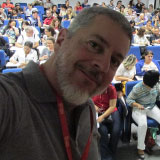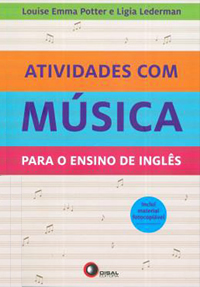By - Marcos Polifemi

Rarely do people think about good qualification or commitment and enthusiasm when talking about English teachers from the public sector in Brazil. And it becomes worse. Some people even feel pityful about them.
However, these feelings don´t help much. First of all, because the impressions mentioned previously are not totally true and, secondly, because, if there is one thing that teachers (from different sectors) do not need is pity.
At the moment, I´m the special projects manager at Cultura Inglesa São Paulo, and among other responsibilities, I´m in charge of the courses we offer to the public school English teachers.
For those whose proficiency level needs improvement, Cultura Inglesa offers scholarships in different branches throughout the state. For those who reach our advanced levels and feel interested in improving their academic qualifications, we offer both an online development program and a post graduation course at PUC, a program which was specially designed for public school teachers. Besides, due to a partnership we have with the CEL (Centro de Estudos de Língua) coordination we also offer video conferences and, last but not least, mini-courses for the English teachers from the city of São Paulo who work with Ensino Fundamental, just to mention some of the initiatives.
By working with those teachers, I had the chance of becoming aware that diversity is one of the keywords to understand the public education system. While some schools do have special rooms which are well equipped with computer, projectors and wifi connection, others, in the same neighborhood do not have paradidatic books so as to conduct story telling sessions with the pupils. While some teachers have been working at the public sector for more than 20 years, others have started a month ago. While some teachers have just taken the CPE, others are B1s in the Common European Framework criteria.
There are many more differences around, however, there is one thing that we can find in most of the teachers: answers and solutions.
Usually, in the courses I teach, there is a lot of exchange involved because, as a good vygotskian, I believe that we learn through interaction and by interacting with others. In these moments, it is amazing to see how much those teachers know and how creative they can be in order to deal with the contexts they have.
Not always, are these solutions informed, but they often work. And when they fail, they are improved and become better.
What? No sound system? That´s OK. We can sing. No reading room? That´s OK… a colorful cloth will help me create a reading corner. No Goldilocks and the three bears book? That´s alright… we can create our own story.
In fact, what those teachers are doing is this: they are creating their own stories. They are creating different learning stories, different learning experiences. They are creating the life stories of children who are lucky to have them as their English teachers.
You may think that I´m having a pollyanna attitude and that I´m being too optimistic, but no. In this text, I have just made a choice of focusing on a good aspect of a complex situation.
I am pretty aware that there are many problems in the public English teaching sector, but I think that there are many people who are focusing on the problems in order to try to sell the solutions and sometimes, the solutions are not to sell… they are there to be shared.
Again, it´s amazing to see those teachers exchanging their ideas, their local solutions, their fear, their doubts, their actions, their work, their accomplishments. Sometimes they are different from ours, but they are accomplishments that deserve to be acknowledged and praised.
This is the moment I value Kumaradivelu’s discussion about the pedagogy of particularity even more:
“(…) language pedagogy, to be relevant, must be sensitive to a particular group of teachers teaching a particular group of learners pursuing a particular set of goals within a particular institutional context embedded in a particular sociocultural milieu. A pedagogy of particularity, then, is antithetical to the notion that there can be one set of pedagogic aims and objectives realizable through one set of pedagogic principles and procedures.” (KUMARADIVELU, 2001, P. 538)
So, to finish this text, I’d like to share a question I keep asking myself everytime I work with teachers: where are the answers for all those particularities mentioned by Kumaradivelu? I guess we may find some in particular sharing moments together with particular people who particularly believe in a particular view of education.
Reference:
KUMARAVADIVELU, B. Toward a Postmethod Pedagogy. In TESOL QUARTERLY Vol. 35, No. 4, Winter, p. 537-560. 2001.
Marcos Cesar Polifemi holds a PhD in Applied Linguistics (LAEL/PUC-SP) and works at Cultura Inglesa São Paulo. Marcos has been working with teacher education for more than 15 years and has written course books and designed face-to-face and online courses for teachers and school coordinators.
email: mcpolifemi@gmail.com
LIVRO RECOMENDADO
